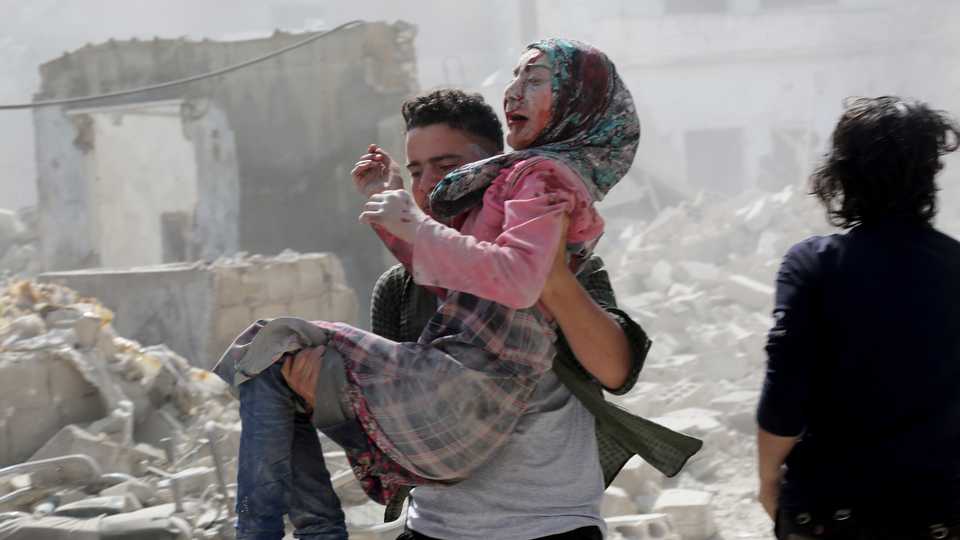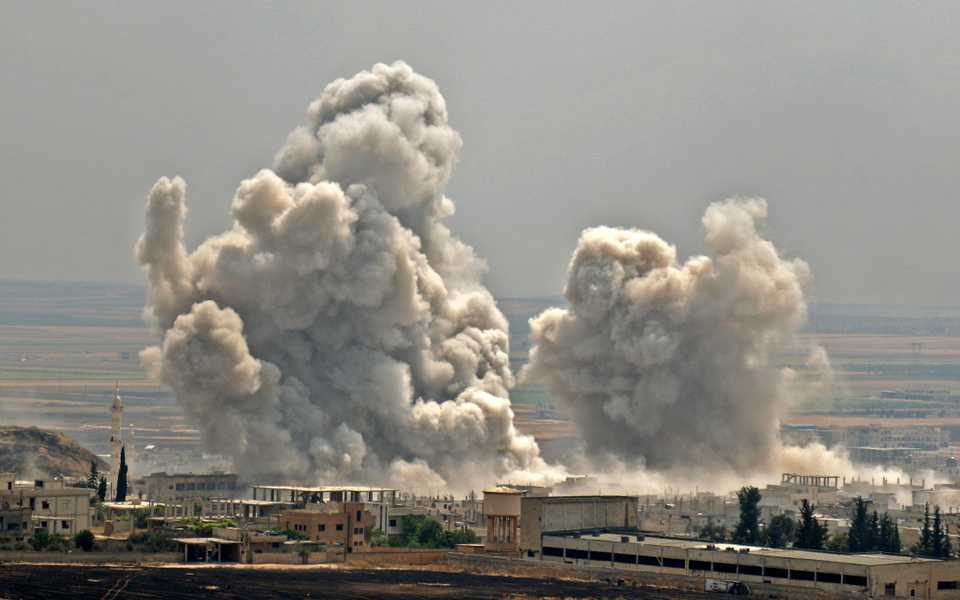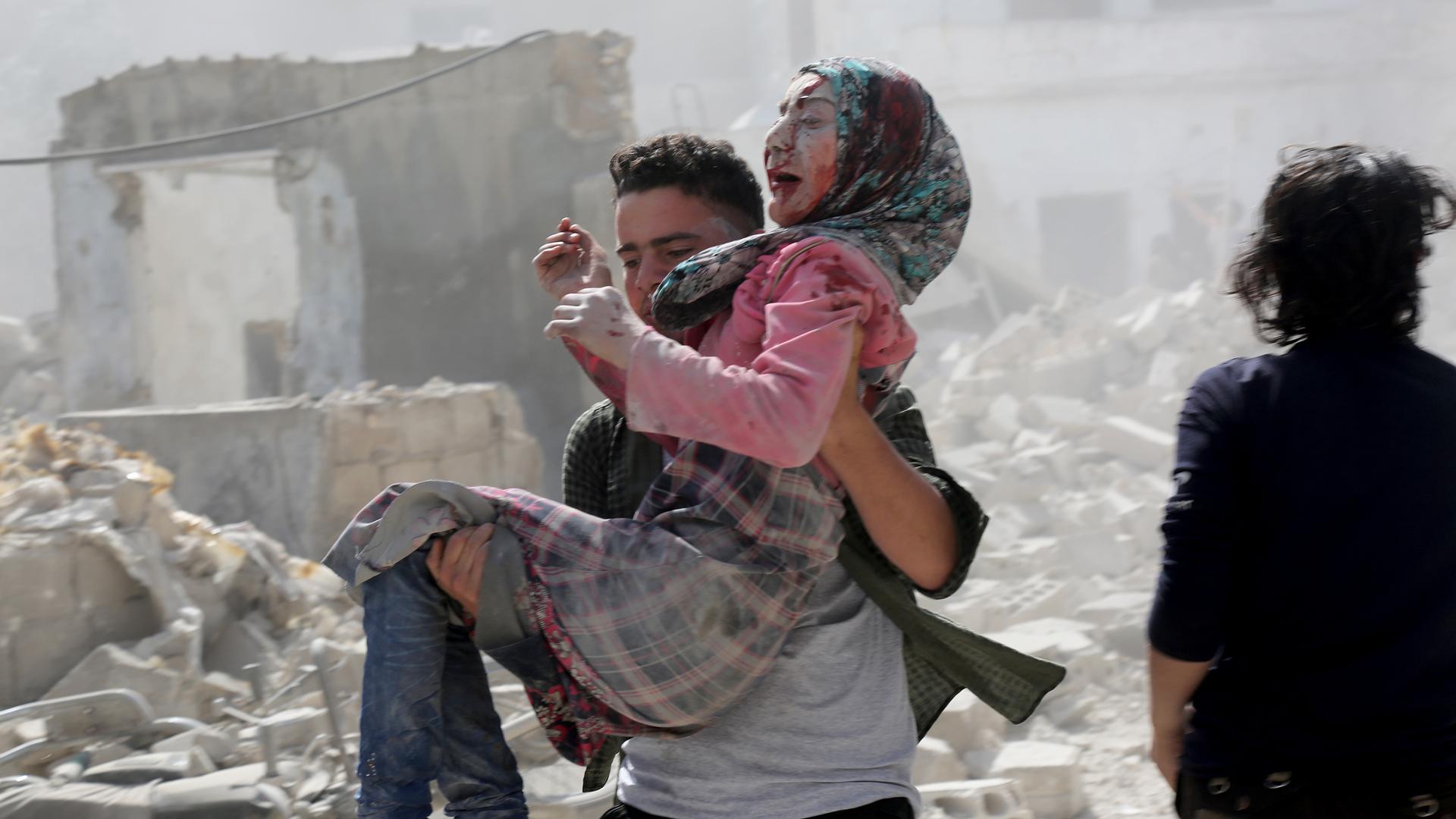
A ceasefire had not been fully secured in Syria’s north-western Idlib province, despite an announcement by Moscow, Turkey’s Minister of Foreign Affairs Mevlut Cavusoglu said on Thursday.
Russian news agencies cited the Russian military as saying on Wednesday that Russia and Turkey brokered a complete ceasefire in Syria’s Idlib province between Syrian regime leader Bashar al Assad’s forces and the opposition.
“We are working hard with Russia to stop these attacks. It is not possible to say a complete ceasefire has been secured,” Cavusoglu told a press conference in Ankara with his French counterpart Jean-Yves Le Drian in Ankara.
The Russian military said the ceasefire applied to the so-called Idlib de-escalation zone and had led to a significant reduction in violence on Wednesday, the news agencies reported.
They did not say how long the ceasefire would last.
Turkey’s defence ministry said an observation post in Idlib was attacked by mortar shells fired from areas under Syrian government control on Thursday. At least three soldiers were lightly wounded.
Intensive shelling continued to target towns and cities in Syria’s southern Idlib countryside and northern Hama countryside after midnight, when a ceasefire was supposed to take effect, Turkey and war monitors said on Thursday.
Regime attacks in Idlib and Hama
Turkey’s defence ministry said on Twitter that 35 mortar rounds were fired at the observation point in what appeared to be a deliberate attack.
It said Russian authorities were contacted over the incident.
The statement said the wounded personnel were being evacuated and added that some equipment at the observation point was damaged.
The Britain-based Syrian Observatory of Human Rights said on Thursday regime forces, with the cover of Russian warplanes, targeted areas under de-escalation zones. Regime forces fired shells on Kafr Zita in Hama and the towns of Abdeen and Al Naqir in southern Idlib.
Aerial strikes on Monday killed at least 25 people, mostly civilians, in northwestern Syria in the sixth week of a Russian-led military offensive that has so far killed hundreds of civilians, according to residents and civil rescuers.
Idlib is the last significant opposition stronghold.

Uptick in violence
The heightened violence in Idlib province and a strip of nearby Hama since April 30 has marked the biggest military escalation between Syrian regime forces and the opposition since last summer.
Tens of thousands of people have fled their homes, many of them sheltering at the Turkish border from air strikes that have killed scores of people.
Turkey had complained to Moscow, which backs the Assad regime, while Russia had said the onus was on Ankara to rein in the opposition.
De-escalation zone
In September 2018, Turkish President Recep Tayyip Erdogan and his Russian counterpart, Vladimir Putin, in Sochi, Russia signed a memorandum of understanding creating a demilitarised zone between rebels and regime forces along Idlib’s border.
Idlib is the last de-escalation zone in –– in which acts of aggression are prohibited –– agreed among Turkey, Russia and Iran during the Astana peace talks in Kazakhstan.
Syria has been locked in a vicious war since early 2011 when the Assad regime cracked down on pro-democracy protests with unexpected ferocity.
Since then, hundreds of thousands of people have been killed and more than 10 million others displaced, according to UN officials.










Discussion about this post